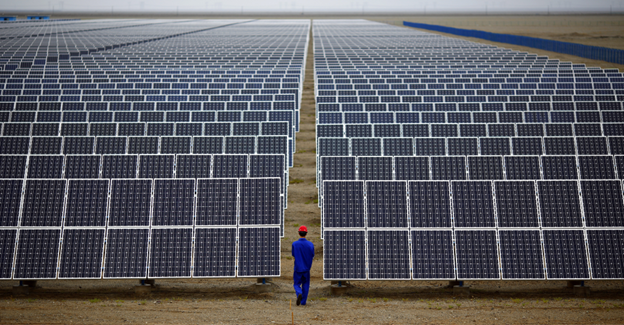The Importance of Recycling Plastic and Production Offcuts
In a world increasingly concerned with environmental sustainability, recycling plastic and production offcuts are more critical than ever. As you navigate the complexities of modern consumption, it’s crucial to understand how your choices impact the planet. By examining current trends and innovative approaches, you’ll gain insights into why recycling matters and how you can contribute to a more sustainable future.

Understanding Plastic Waste
Plastic waste refers to any discarded plastic material that is no longer useful for its intended purpose. It includes everything from single-use packaging to durable goods that have reached the end of their life cycle.
The scale of plastic waste is staggering. According to a report by the Organization for Economic Co-operation and Development, global waste generation more than doubled from 2000 to 2019, reaching 640 million tonnes. When not properly managed, plastic waste can:
- Pollute oceans and waterways, harming marine life.
- Contaminate soil and groundwater.
- Release harmful chemicals as it breaks down.
- Contribute to greenhouse gas emissions during production and disposal.
Understanding Production Offcuts
Production offcuts — or manufacturing waste or scrap — are leftover materials generated during manufacturing. They can include trimmings, excess materials and defective products that don’t meet quality standards. Common industries generating production offcuts include:
- Manufacturing
- Packaging
- Construction
- Textiles
- Plastics production
The scale of production offcuts can be substantial. If not recycled, they can contribute significantly to industrial waste and have potential environmental impacts such as increased landfill usage and wasted resources.
Some companies are leading the way in recycling production offcuts. For example, one uses 100% recyclable sheet plastic, and all production fall-offs and cut-outs are recycled in its play structures. This approach demonstrates how businesses can integrate recycling into their production to minimize waste.
The Importance of Recycling Plastic
The United Nations Environment Program estimates 8 million tons of plastic enter the oceans yearly, equivalent to dumping a garbage truck of it into the ocean every minute. Recycling provides numerous benefits, including:
- Resource conservation: Recycling plastic may significantly reduce the need for new raw materials. This conservation of resources is crucial as demand continues to grow globally.
- Landfill reduction: The Environmental Protection Agency reports that plastic made up 18.5% of landfill materials in 2018. Recycling plastic may help divert substantial amounts of waste from landfills.
- Greenhouse gas mitigation: Recycling typically requires less power than producing new plastic from raw materials, potentially reducing greenhouse gas emissions.
- Marine ecosystem protection: Proper recycling may help prevent plastic waste from entering oceans and harming marine ecosystems.
- Economic benefits: The recycling industry may create jobs and stimulate economic growth. A report by the Institute of Scrap Recycling Industries suggests the recycling industry contributes $117 billion to the U.S. economy annually.
- Energy savings: Recycling plastic may result in significant electricity savings compared to producing new plastic. According to Plastics for Change, recycling one ton of plastic may save up to 98 million British thermal units of energy, 16.3 barrels of oil and 30 cubic yards of land.
Benefits of Recycling Production Offcuts
Recycling production offcuts offers numerous benefits, including the following:
- Resource efficiency: Recycling production offcuts may help manufacturers maximize resource utilization, reducing waste and potentially lowering production expenses.
- Closed-loop manufacturing: By recycling offcuts, enterprises can move toward closed-loop systems, which could reduce the need for new raw materials.
- Innovation catalyst: The challenge of recycling production offcuts may drive innovation in manufacturing processes and recycling technologies.
- Cost savings: Companies may save on waste disposal costs and generate additional revenue by selling recyclable materials.
- Enhanced corporate image: Effective waste management through recycling may improve public image and appeal to environmentally conscious consumers.
How You Can Contribute
As an individual, you may play a crucial role in promoting plastic recycling:
- Proper sorting: Learn about local recycling guidelines and sort your plastic waste accordingly.
- Reduce and reuse: Before recycling, consider ways to reduce your plastic consumption and reuse items when possible.
- Support recycled products: Choose products made from recycled materials to help create demand for recycled plastic.
- Educate others: Share your knowledge about the importance of recycling plastic with friends, family and your community.
- Participate in local initiatives: Get involved in community recycling programs or beach clean up events.
Innovative Approaches to Plastic Recycling and Production Offcuts
Recent developments in plastic recycling and production offcut management include:
- Chemical recycling: This process breaks down plastics into their chemical components, creating new high-quality plastics.
- Artificial intelligence in sorting: AI-powered sorting systems may improve the efficiency and accuracy of plastic waste sorting, making recycling more effective.
- Biodegradable alternatives: Research into biodegradable materials may help reduce the environmental impact of plastic waste and production offcuts.
- Upcycling: Creative reuse of plastic waste and production offcuts into new, higher-value items may add value to recycled materials and reduce overall waste.
- Advanced manufacturing: Technologies like 3D printing may help reduce production offcuts by enabling more precise manufacturing processes.
Toward a Circular Economy: The Future of Plastic and Production Offcut Recycling
The importance of recycling plastic and production offcuts extends beyond waste management. By understanding the benefits of recycling and actively participating in recycling efforts, you may contribute to reducing environmental impact, conserving resources and promoting innovation.
As technology and awareness evolve, the potential for effective plastic recycling grows. Your individual actions and broader societal efforts may pave the way for a future where plastic waste is minimal and resources are used more efficiently.



















